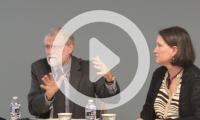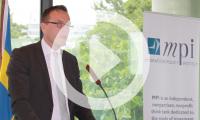International Organizations
Recent Activity

One month ago, world leaders gathered at the United Nations for a summit to discuss movements of refugees and migrants, however the absence of concrete commitments in the resulting New York Declaration disappointed many observers and the slow progress on multilateral cooperation around migration has particular salience for the European Union, since the arrival of more than 1 million asylum seekers to Europe in 2015. This panel brings officials together from a range of institutions mandated to consider the future of cooperation, whether bilaterally, regionally, or at the global level, and asks: What is possible, what is desirable, and what is likely?

MPI experts discuss outcomes from the UN Summit for Refugees and Migrants, the Leaders Summit on Refugees, and related private-sector meetings and how these efforts may gain momentum to change international responses to the complex threats refugees and migrants face.

Back from a recent trip to the region, Human Rights Watch researchers discuss the situation of refugees at the Dadaab camp in Kenya and findings from on-the-ground interviews, along with recommendations for the Kenyan government and international community.

Swedish and U.S. government officials, and MPI's Kathleen Newland discuss global and national responses to rising displacement, innovations in managing migration processes, and attempts to address the dysfunctional aspects of international migration, in a discussion organized by MPI and the Embassy of Sweden to the United States.

A discussion on how the politics and migration policies of the British government influenced the decision to hold the "Brexit" referendum, how public attitudes towards immigration might influence the decision whether the United Kingdom leaves the European Union, and how the outcome might impact migration policy in the United Kingdom and European Union more broadly.










As COVID-19 Slows Human Mobility, Can the Global Compact for Migration Meet the Test for a Changed Era?